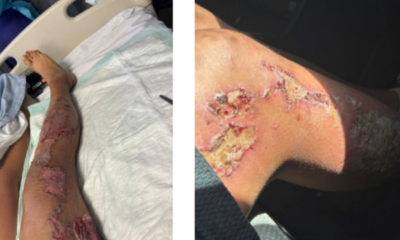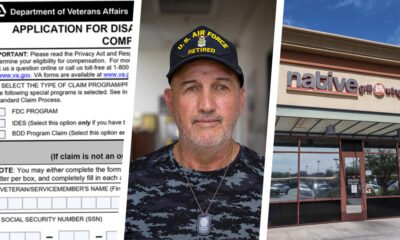Entertainment
Republican Lawmakers Demand Action on the Missing and Murdered Indigenous People Crisis

Two Arizona Republican legislators are calling for collaboration among state and federal lawmakers to tackle the crisis of missing and murdered Indigenous peoples (MMIP). Their push follows the recent enactment of a bill to establish a Turquoise Alert System, a pivotal step in addressing this ongoing issue.
Indigenous communities nationwide have prioritized raising awareness about MMIP, a crisis affecting countless families. Rep. Walt Blackman highlighted the human aspect, asserting that the focus must remain on the lives disrupted by violence, particularly among Indigenous women, whose murder rates exceed the national average by over tenfold, according to the Department of Justice.
The Centers for Disease Control and Prevention reported that in 2017, homicide was the fourth-leading cause of death for Indigenous women and girls ages one to 19, and sixth for those aged 20 to 44. Furthermore, a National Institute of Justice study found that 84% of Indigenous women experience violence in their lifetime, compared to 71% of white women.
Blackman, who represents a district adjacent to the Navajo Nation, shared personal stories that illustrate the crisis’s impact. He stressed the need for improved tracking and coordination among agencies when an Indigenous person goes missing, enabling quicker alerts.
Alongside Blackman, Rep. Teresa Martinez, who sponsored the Turquoise Alert System bill, convened a press conference at the Arizona State Capitol. House Bill 2281 aims to unify alerts for missing Indigenous and endangered persons through the federally sanctioned Emergency Alert System. The bill garnered unanimous support in both the House and Senate, following an amendment that allows alerts for missing minors.
The urgency of this action was underscored by the recent case of Emily Pike, an Indigenous teen whose disappearance and subsequent murder galvanized legislative efforts. “We have too much work to do to protect women and children of Arizona,” Martinez stated, emphasizing the need for equitable standards in missing persons cases.
Martinez represents District 16, including communities like the Gila River Indian Community. She expressed her commitment to advocate for all children, regardless of background, stating that awareness around these issues is crucial for making tangible changes.
The MMIP crisis has plagued Indigenous communities for generations, driven by the efforts of Indigenous leaders and their supporters. Awareness rallies and legislative initiatives have highlighted this persistent issue in Arizona, which hosts the third-largest number of missing and murdered Indigenous women and girls in the U.S.
Reports indicate 506 known cases of MMIP in urban areas nationwide, with Arizona accounting for 54 cases, including 31 in Tucson. In 2021, Arizona also recorded the third-highest number of unresolved missing Indigenous people cases, with 91 currently documented in the NamUs database.
Despite these alarming statistics, there remains no centralized database cataloging MMIP incidents across the country. The lack of accurate data hampers efforts to develop effective solutions. Indigenous individuals make up roughly 6% of Arizona’s population, with many residing on tribal nations.
Blackman criticized the systemic neglect of these issues, noting that similar crises in other demographics would prompt rapid legislative action. His and Martinez’s initiative aims not only for new funding but also to enhance existing support systems for Indigenous communities.
Lorena Halwood, executive director for the nonprofit Amá Dóó Áłchíní Bíghan, advocates for increased resources for victim services and tribal law enforcement. Having served in this field for nearly three decades, she highlighted the urgent demand for funding and services to combat the pervasive violence in Indigenous communities.
Halwood’s organization receives minimal funding through the Victims of Crime Act but continues to strive for more comprehensive support. She emphasized the importance of unity in advocating for justice. “Together we can advocate for real change in our communities,” she affirmed.
Karen Bedonie from the Navajo Nation called for Indigenous self-representation in legislative matters, noting that their issues are often marginalized. She expressed the necessity of ensuring the Turquoise Alert System remains effective, stating, “We want to be represented and not misrepresented.”


















